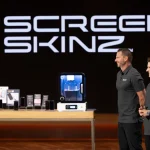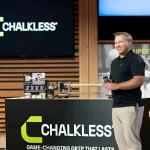
Highlights
- Shark Tank has emerged as a game-changer for entrepreneurs hunting for an experienced investor for their business.
- To date, pitchers from a range of verticals have presented over 1300 pitches.
- The pitch presentation involves multiple aspects, including stating business-related figures, storytelling, and handling product samples to win over the Sharks.
Shark Tank has been nothing less than a boon for entrepreneurs in their quest for a much-needed investment. Through a uniquely crafted pitch, they have earned the investors’ trust and transformed their business goals into actionable ventures.
Over the years, the show has seen hundreds of pitches, but not all have secured deals. So, what separates a winning pitch from those that fail? While there’s no fixed formula for an ideal pitch, the most successful presentations in the past have been entertaining (mostly humorous), inspiring, and backed by solid numbers.
How Entrepreneurs Craft Winning Shark Tank Pitches
Shark Tank has revealed patterns in how entrepreneurs pitch. From knowing their numbers to making emotional appeals, below is a detailed discussion of how different entrepreneurs generally present their pitches on the show.
1. Understanding What The Sharks Want
If you have observed the show closely, in most of the pitches, investors, especially Kevin O’Leary, ask the pitchers, ‘How can I make money?’ or ‘What’s in it for me?’
Realizing this, the entrepreneurs adjust their pitches by starting with the investment sought and equity.
Following this, they throw light on the sales figures, including both the previous year’s sales and projected figures for the coming years.
Additionally, they discuss the profit margins and amounts raised through fundraising platforms like Kickstarter or Indiegogo.
Apart from this, based on their industry, they target the most favorable investor for their business.
For instance, if it is a retail business, they try to win the trust of Lori Greiner the most. Similarly, if they are open to royalty deals, they aim to grab Kevin’s attention.
These minor touches indicate the entrepreneur’s research efforts and the will to connect with a suitable investor for the business. In the end, the most integral element of a Shark Tank pitch is to make the panelists feel involved.
2. Being Prepared With The Numbers
Whenever a new entrepreneur walks up to the judges with their Shark Tank pitch, they generally begin by highlighting the business valuation.
For instance, they state the investment amount to be $100K for a 5% equity, which implies that they value their business at $2 million.
When the valuation is that high, it is evident that the judges will want to know about the revenue, sales, projected growth, debts, and profit margins. If the entrepreneur fails to answer, it would indicate that they are not aware of the basic details of their own business.
This would further forbid the Sharks from proposing a deal. An example of this is ‘Nopalera,’ where the pitcher could not answer the questions related to projected sales.
Sandra Velasquez had sought $300K for 5% equity in her skincare venture.
However, when the interested Sharks, including Kevin and Guest Shark Daniel Lubetzsky, asked about the economics of the business, she could not give proper answers.
Ultimately, none of the investors made an offer.
3. Presenting The Samples
Shark Tank’s sixteen-year history has offered viewers a wide variety of products, including food, pet products, clothes, tech appliances, and movies.
In almost all of the pitches, regardless of the nature of the product/company, entrepreneurs have tried to entice the judges by offering them samples.
The pitchers have requested the Sharks to eat (if something edible), wear (if something wearable), or use (if something tech-based) their products/services in different seasons.
This is mainly because doing so turns a product/company’s simple nature into a real experience, thereby allowing the investors to examine its usefulness closely. If impressed, they may consider making an offer.
The Bridal Babes pitch is an example of the same. The entrepreneur duo of Charles and Ashley Young offered the investors samples of their bridesmaid dresses.
The investors were hugely impressed with the material and decided to make their offers based on it.
While they had requested a $250K investment at 10% equity, the final deal was locked with Guest Shark Emma Grede for $250K at 25% equity.
4. Emphasizing On Emotions
At the end of the day, Shark Tank is a reality show whose popularity relies heavily on a wide range of emotions. This is reflected in the many pitches made by various entrepreneurs.
Be it the humorous dance by Steve Gadlin for I Want To Draw A Cat For You or the tear-jerking backstory of CupBoardPro owners, the judges were deeply engrossed in both pitches due to their unique, funny, and emotional appeal. The investment sought was $10K for 25% equity.
Steve’s business idea was based on the simple concept of drawing funny cartoon characters. However, his effort to make the pitch funny yet engaging still secured him a deal from Mark Cuban for $25K at 33%.
On the other hand, the entrepreneur trio of Keira, Christian, and Kaley Young sealed a deal with all five investors due to the emotional backstory of their firefighter dad.
Seeking a $100K investment for 10% equity in their father’s cutting board creation, they explained how he played a role in rescuing victims of 9/11.
The siblings were successful in receiving the requested investment at the requested equity rate.
What Makes a Shark Tank Pitch Successful?
A successful Shark Tank pitch is thoroughly researched, numbers-driven, emotionally engaging, and has always had an edge over others in the show.
Shark Tank investors want confidence that entrepreneurs understand their business and can deliver returns. Sharks would like to join hands with the entrepreneurs only if the company can offer them significant outcomes.
While not every Shark Tank pitch secures a deal, the most memorable ones strike the right balance between storytelling, strategy, and substance. Such pitches leave both Sharks and viewers inspired.




















